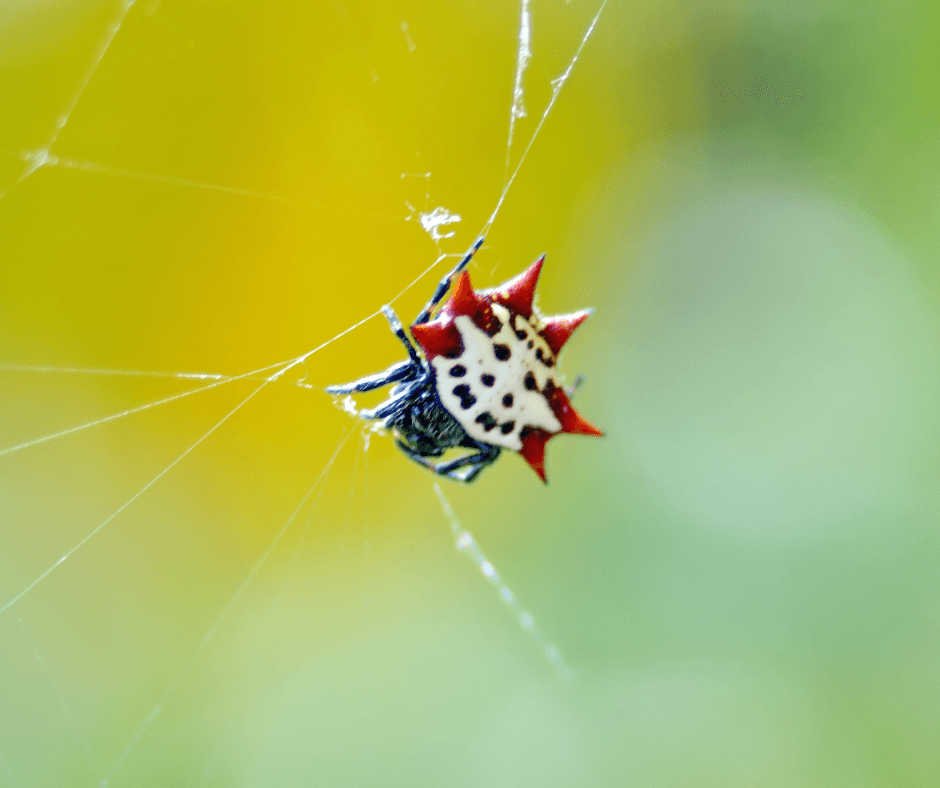Spiny Orb Weaver
Gasteracantha cancriformis
Spiny Orb Weaver Stats
Color: White, yellow, or red with black spines and spots
Size: Adults are typically 0.1 - 0.3 inches in length
Shape: Small, crab-like body with six prominent spines
What is a Spiny Orb Weaver?
Spiny orb-weavers are small, colorful spiders known for their distinctive spiny bodies. They are often found in gardens and forests, where they build their intricate webs to catch prey. These spiders are sometimes called crab spiders due to their shape.

Where do Spiny Orb Weavers live?
Spiny orb-weavers live in warm, humid environments such as gardens, forests, and bushes. They build their webs in trees, shrubs, and even in the corners of buildings. These spiders are commonly found in the southeastern United States, including Florida.
What do Spiny Orb Weavers eat?
Spiny orb-weavers eat a variety of small insects. Their diet includes flies, mosquitoes, and other tiny bugs that get caught in their webs. They use their venom to immobilize their prey before eating.
How do Spiny Orb Weavers behave?
Spiny orb-weavers are known for their web-building skills. They spin small, orb-shaped webs to catch insects. These spiders are not aggressive and usually stay in their webs, waiting for prey. Their brightly colored bodies and spines help deter predators.
How do Spiny Orb Weavers reproduce?
The female spiny orb-weaver lays eggs in a silken sac, which she attaches to her web or hides in a protected area. The egg sac can contain many eggs. Once hatched, the spiderlings disperse to build their own webs.
How can you control Spiny Orb Weavers?
Spiny orb-weavers are beneficial predators that help control insect populations. If you need to remove them, carefully relocate the spider and its web to a more suitable outdoor location. Keeping your garden tidy and reducing web-building sites can help manage their presence.
How do Spiny Orb Weavers impact humans?
Spiny orb-weavers are not harmful to humans. They rarely bite, and their venom is not dangerous to humans. These spiders can be beneficial by reducing the number of pest insects in gardens and natural areas. Their unique appearance and helpful nature make them an interesting and valuable part of the ecosystem.
Explore More Spiders
Our Pest Control Service Areas
Let us help you eliminate these pests!
We treat your home or office as if it were our own!

BUSINESS HOURS
- Mon - Sat
- -
- Sunday
- Closed


